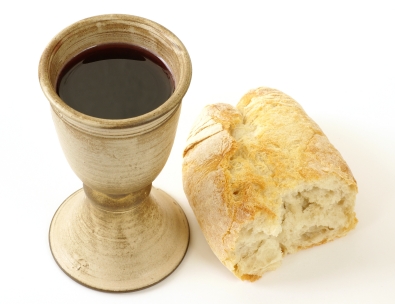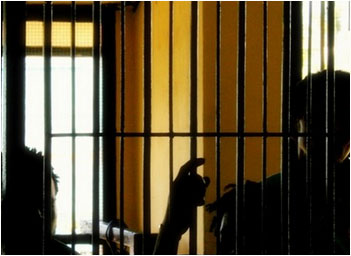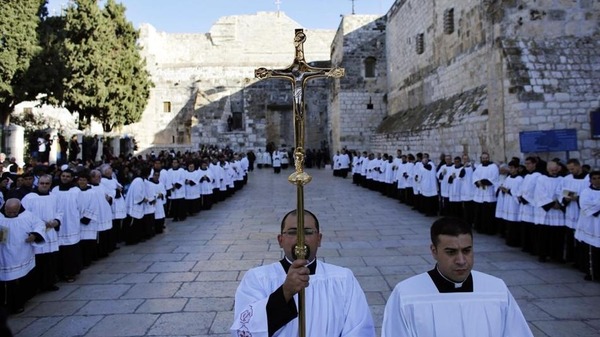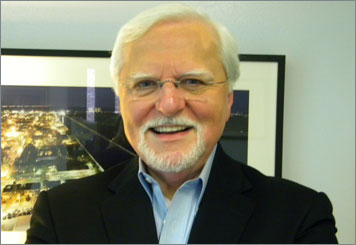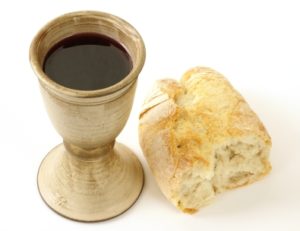
By Bennet Lawrence
SEVERAL PASSAGES IN the New Testament talk about the Lord’s Supper. Mark 14:22-25 and Matthew 26:26-29, both talk about the last supper of Jesus Christ. Clearly the setting in which the narrative was kept in these passages was the Passover meal. Luke 22:14-20 shares the same story in similar settings with little more details. One significant addition is Jesus’ command to do this more often, “do this in remembrance of Me” (Luke 22:19).
Similarly Paul also shares similar command in 1 Cor 11:23-26. He says, “For I received from the Lord that which I also delivered to you, that the Lord Jesus in the night in which He was betrayed took bread; and when He had given thanks, He broke it and said, ‘This is My body, which is for you; do this in remembrance of Me.’ In the same way He took the cup also after supper, saying, ‘This cup is the new covenant in My blood; do this, as often as you drink it, in remembrance of Me.’ For as often as you eat this bread and drink the cup, you proclaim the Lord’s death until He comes.” This is a significant passage as it shares the regulations of Lord’s Supper in a church setting. This will be discussed in little detail later. Before that it must be said that though John does not talk about the Lord’s Supper with an “Institution Narrative” it does have Passover meal narrative along with foot washing ceremony in John 13. Therefore, Lord’s Supper is an important theme in the New Testament.
As it is commanded in Luke and 1 Corinthians, Holy Communion (or Lord’s Supper or Eucharist, used interchangeably) must be practiced as a sacrament in the churches. Though these passages do not suggest how often this must be practiced it is clear that the church of God should take part in Lord’s Supper often as it is a vehicle to remember Christ and proclaim His death. Paul says, “Do this, as often as you drink it, in remembrance of Me. For as often as you eat this bread and drink the cup, you proclaim the Lord’s death until He comes” (1Co 11:25-26). If taking part in Lord’s Supper is remembering and proclaiming His death then we must do it as often as possible because that is the mission of the church. Moreover, to get more clarity one must understand the way in which one should take part in Lord’s Supper and also must understand about the contents of this sacrament. To this now we turn. First, it is better to discuss about the contents of this Sacrament.
Fourth Lateran Council (1215) defined transubstantiation as follows: “There is one universal church of the faithful, outside of which none can be saved, in which the priest himself is the sacrifice, Jesus Christ, whose body and blood are truly contained under the species of bread and wine, by the bread being changed in substance to the body [transsubstantis pane in corpus] and the wine to the blood through the divine power.” There are two important words to note here: “substance” (inner identity) and “species” (outward appearance). Substance is the essential nature while the species is the outward appearance. For the adherents of transubstantiation, while the “accidents” or “species” of bread and wine (appearance, taste, smell, etc.) remain unchanged, the “substance” of bread and wine changes to the body and blood of Jesus when it is consecrated. Therefore, transubstantiation is a belief which says when the bread and wine are consecrated its substances are transformed into the real body and blood of Christ and that the bread is no longer a bread though it may appear so (accident) but it is the real body of Christ, in substance. Likewise, the wine is transformed into the real blood of Christ though its accidents may not be altered. Though this seems to be an interesting idea its implications to the practice of Eucharist (Lord’s Supper) is huge. If the bread and the wine really transforms into the divine body and blood of Christ then utmost care must be taken in the administration of the elements, as these Eucharistic elements become divine.
Therefore, Martin Luther suggested a little alteration in this concept. His view is called Consubstantiation. For Luther, both the substances of bread and the body of Christ co-exist simultaneously after the bread is consecrated. While the Catholic Theologian of the 13th Century suggested that in transubstantiation the substance of bread and wine is annihilated when consecrated Luther suggested that it need not be so. For Luther, the substance of bread and wine and the substance of bread and blood of Christ exist simultaneously. This means that the bread and the wine are not totally transformed into the body and blood of Christ but the body and the blood of Christ mysteriously are present in the consecrated bread and the wine. Luther illustrated it with an example: when an iron is heated both the substance of iron and heat are present together likewise, for him, the body and the blood of Christ co-exist with the substance of the bread and the wine in these elements, respectively.
Swiss Protestant reformer Huldrych Zwingli proposed another terminology to explain the Eucharist, called Memorialism. For Zwingli, the Eucharist is “a memorial of the suffering of Christ, and not a sacrifice. The words of Jesus, “this is my body” should not be taken literally. Interpreting Matt 26:26, Zwingli says, “there are innumerable passages in Scripture where the word ‘is’ means ‘signifies.’” If it is not literal then it must be figurative. If it is figurative there is no real presence of the body of Christ as supposed by the Catholics or Lutheran. Therefore, Zwingli claimed that the Eucharist is just a memorial act rather than taking part in eating the real body of Christ.
John Calvin, the famous Reformer, differed significantly from the pioneer of Protestantism, Martin Luther. For Calvin, the bread does not transform into the body, neither that the body of Christ present mysteriously in the bread. However, he does not agree with Zwingli either to diminish the importance of the Eucharist. For Calvin, the bread and the wine are the earthly symbols of the spiritual realities above. That is why some even call Calvin’s view as Suprasubstantiation (Keith Mathison). The significance of this view is that it recognizes the importance of the Lord’s Supper by the same time acknowledges that the bread need not have become the real body of Christ. In addition, it stresses that the bread in the material form signifies the body of Christ in the spiritual realm. Simultaneously, the wine in the material form signifies the blood of Christ in the spiritual realm.
It is time then to look at the passages to see what the scripture says about the Eucharist. As mentioned, though Lukan Lord’s Supper narrative indicate initiation 1 Cor 11:17-34 shows how it should not be practiced thus it tells a lot about the Eucharist. Paul tells the church at Corinth that when they gather together to eat Lord’s Supper they are not taking part of it properly. He says, “Therefore when you meet together, it is not to eat the Lord’s Supper, for in your eating each one takes his own supper first; and one is hungry and another is drunk” (1Co 11:20-21). For Paul, when even though they take part in Lord’s Supper it is not Lord’s Supper because they do not take part in it properly. He does not even consider their Lord’s Supper as Lord’s Supper. He further goes on to tell that taking part in Lord’s Supper improperly will bring on judgment. He says, “Therefore whoever eats the bread or drinks the cup of the Lord in an unworthy manner, shall be guilty of the body and the blood of the Lord. But a man must examine himself, and in so doing he is to eat of the bread and drink of the cup. For he who eats and drinks, eats and drinks judgment to himself if he does not judge the body rightly. For this reason many among you are weak and sick, and a number sleep” (1Co 11:27-30). Some have even died because they didn’t take part in it properly. If the Eucharist is just a memorial as Zwingli suggested why then are they punished so severely. The importance given to this sacrament in 1 Cor 11:17-34 indicates that this is much more than memorialism.
Moreover, Paul narrates the institutionalization of Lord’s Supper in 1 Cor 11:23-25. He shows that it is from the tradition, “For I received from the Lord that which I also delivered to you,” (1Co 11:23). This shows that this tradition is well known and that the Eucharist had been practiced widely even in the time of Paul. “that the Lord Jesus in the night in which He was betrayed took bread and when He had given thanks, He broke it and said, This is My body, which is for you; do this in remembrance of Me.” In the same way He took the cup also after supper, saying, ‘This cup is the new covenant in My blood; do this, as often as you drink it, in remembrance of Me’” (1Co 11:24-25). There are several things that we must note from this passage. One of the most important one is the reason why Paul wrote these verses. Paul tells his church at Corinth that you are taking part in the Lord’s Supper improperly. In addition, He shares the institution story so that they will take part in it properly. And this institutionalizing story shows the importance given to the elements as the body and blood. Therefore, it is possible that the church at Corinth was not taking part in the Lord’s Supper meaningfully in understanding the importance of the elements. Paul stressed here that the bread and the wine are not just food but they are the body and the blood of Christ. Forgetting this and taking part in the Lord Supper would mean that it has lost its significance and that which attracts judgment from God, even to death.
This prompts to the questions above. This is not just a memorialism though Paul says in v.25 that Jesus asked the people to take part in it “in remembrance of” Him. The matter is bit more serious: The church forgot the significance of the elements of the Lord’s Supper. The bread and the wine are not just the bread and the wine but spiritual elements with spiritual significance. Should we then assume transubstantiation? Not necessarily because it does not mean that the bread ceases to be the bread and that the wine ceases to be the wine. However, they must be considered as the body and the blood of Christ, either as consubstantiation or as suprasubstantiation.
1 Cor 11:17-34 also teaches another important message. The debate is not just about the contents of the elements of the Lord’s Supper. Paul brings the aspects of the contents as an answer to a social problem. Though the understanding of the contents of the elements of the Lord’s Supper is important in 1 Cor 11:17-34, it shows a major problem which was present in the church at Corinth against which Paul wrote. The problem was a social one. Paul says, “What! Do you not have houses in which to eat and drink? Or do you despise the church of God and shame those who have nothing? What shall I say to you? Shall I praise you? In this I will not praise you” (1Co 11:22). Paul says that he could not praise them because they “despise the ones who have nothing” (the poor) by eating separately. Ben Witherington points out that in the Greco-Roman world the rich would not eat with the poor and thus the rich eat earlier in the dining room and only leaving little to the rest of the congregation, which were poor. Therefore, the rich members of the community ate to full while the poor went home hungry, (one is hungry and another is drunk,” 1Co 11:21). The members of the community did not establish equality in the eating of the Lord’s Supper but they ate as if it was just food. For that Paul had to remind them that the elements of the Lord’s Supper are not just food but are the body and blood of Christ and that it must be practiced with reverence and as a memorial to the proclamation of Christ’s death (17:26). Therefore, Lord’s Supper must be practiced with an understanding that the bread and the wine are the body and the blood of Christ and with an understanding that all members of the community are equal in status.
The practice of the Holy Communion should contain these two aspects: All members of the community are equal, and that the elements of the Lord’s Supper are to be considered as the body and the blood of Christ. Equality comes with love. Therefore, Equality, love and right understanding of the elements of the Lord’s Supper are important in the practice of the Lord’s Supper. May we then take part in this Lord’s Supper with right understanding and reverence? Amen!



